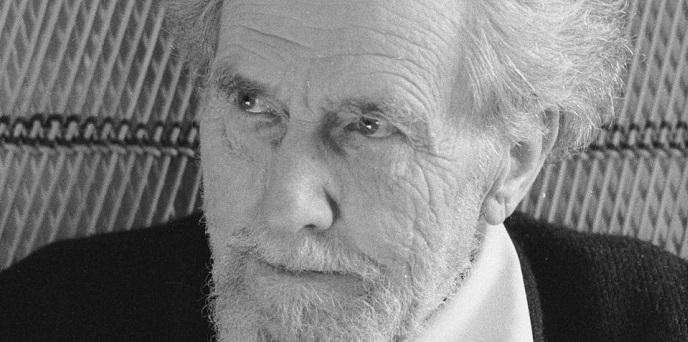Ezra Pound Works Explained: A Modernist Icon's Legacy

Ezra Pound is widely recognized as one of the most influential figures in modernist poetry. His works not only shaped the course of 20th-century literature but also challenged traditional poetic forms and conventions. Pound's writing blends classical allusions, innovative language, and sharp critique of cultural norms. To understand his significance, it is essential to examine his major works, his techniques, and the impact he had on both his contemporaries and future generations. Ezra Pound's contributions remain a cornerstone of modernist literature, demonstrating how poetry can merge intellect, innovation, and social commentary.
Early Works and the Development of Style
The Influence of Imagism
One of Ezra Pound’s earliest contributions to modernist poetry was his role in developing Imagism. This movement emphasized clarity, precision, and economy of language. In poems like In a Station of the Metro, Pound captured fleeting moments with striking visual images. The famous lines, "The apparition of these faces in the crowd; / Petals on a wet, black bough," exemplify his skill in distilling complex impressions into concise, vivid imagery. These early works showcase Pound’s commitment to clarity and his belief that poetry should present an image directly and powerfully.
Personae and Early Collections
In addition to his imagist works, Pound experimented with persona and narrative in collections such as Personae (1909). This book contains poems that adopt historical or fictional voices, giving the reader a variety of perspectives. Through this approach, Ezra Pound explored themes of identity, cultural history, and the tension between past and present. His early experimentation with voice and style set the stage for his later, more ambitious projects.
The Cantos: A Magnum Opus
Scope and Ambition
Ezra Pound’s most famous work is The Cantos, an epic poem that he worked on for decades. The Cantos combines history, politics, economics, and literature into a sprawling modernist narrative. Each canto functions almost as a self-contained meditation, yet together they form a larger exploration of civilization, culture, and human achievement. Pound’s use of multiple languages, including Chinese, Italian, and Latin, demonstrates his wide-ranging scholarship and his desire to connect disparate cultural threads.
Innovative Techniques
In The Cantos, Ezra Pound employs techniques such as juxtaposition, fragmentation, and allusion. He layers historical references, myth, and economic theory to create a dense tapestry of meaning. This approach challenges the reader to actively engage with the text. Pound’s method often defies chronological order and conventional narrative, reflecting the modernist emphasis on complexity and experimentation. His innovative techniques influenced many poets, including T.S. Eliot and William Carlos Williams, who admired his bold reimagining of form.
Ezra Pound as a Literary Critic
Advocacy for Other Poets
Beyond his own writing, Ezra Pound was a tireless advocate for other poets. He helped publish and promote works by T.S. Eliot, James Joyce, and H.D., shaping the modernist literary scene. Pound’s keen editorial sense and his understanding of poetic innovation made him a central figure in early 20th-century literature. By mentoring and supporting other writers, he extended his influence beyond his own texts, ensuring that modernist ideals reached a broader audience.
Critical Writings
Ezra Pound also produced influential essays and critical works, such as ABC of Reading. In these writings, he explored the principles of literature and emphasized the importance of precision, cultural knowledge, and historical awareness in poetry. His critical perspectives reinforced his poetic innovations, demonstrating that Ezra Pound’s contributions were both practical and theoretical.
Controversy and Historical Context
Political Engagement
Ezra Pound’s legacy is complicated by his political involvement during World War II. He openly supported fascist regimes and produced propaganda broadcasts in Italy. While these actions are widely criticized, they are part of the historical context of his life and work. It is important to acknowledge the complexity of his contributions, separating the literary achievements from the controversial political activities.
Impact on Reputation
Despite controversy, Ezra Pound’s influence on poetry remains profound. His experiments with form, language, and historical depth shaped the trajectory of modernist literature. Scholars continue to study his works for their innovative approach to structure, imagery, and cultural synthesis. The tension between his artistic brilliance and political missteps adds layers to the discussion of his legacy.
Influence on Modern and Contemporary Poetry
Shaping Modernist Poetics
Ezra Pound’s works exemplify the modernist ethos of breaking with tradition. He rejected overly ornamental language and linear narratives in favor of precision, fragmentation, and cultural intertextuality. Poets such as H.D., William Carlos Williams, and Marianne Moore drew inspiration from Pound’s emphasis on imagery and clarity. His methods encouraged writers to explore personal and cultural history in new ways, contributing to the development of 20th-century poetry as a site of innovation and experimentation.
Legacy in Contemporary Practice
Contemporary poets continue to engage with Ezra Pound’s techniques, particularly his use of juxtaposition and his layering of historical and cultural references. His insistence on precision and his blending of global literary traditions resonate in current practices of experimental and multilingual poetry. Pound’s work demonstrates that modernist experimentation can remain relevant, offering tools for poets seeking to bridge tradition and innovation.
Conclusion
Ezra Pound’s works illustrate the transformative potential of modernist poetry. From his early imagist experiments to the epic scope of The Cantos, he challenged traditional forms, integrated multiple languages, and expanded the possibilities of poetic expression. His role as a critic and mentor further amplified his impact, shaping the careers of numerous poets and promoting modernist ideals. While his political choices remain controversial, his literary legacy is undeniable. Ezra Pound’s poetry continues to inspire study and reflection, proving that innovation, boldness, and engagement with history can create enduring contributions to the art of verse.
- Art
- Causes
- Crafts
- Dance
- Drinks
- Film
- Fitness
- Food
- Παιχνίδια
- Gardening
- Health
- Κεντρική Σελίδα
- Literature
- Music
- Networking
- άλλο
- Party
- Religion
- Shopping
- Sports
- Theater
- Wellness



